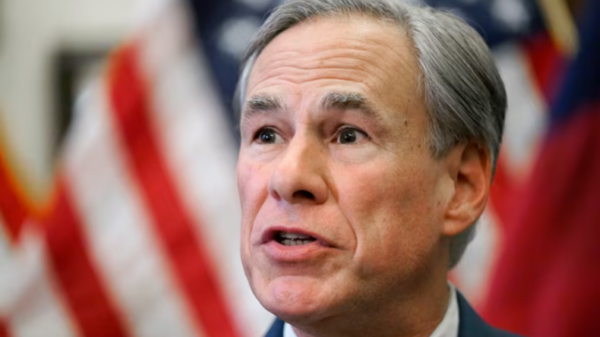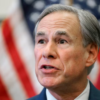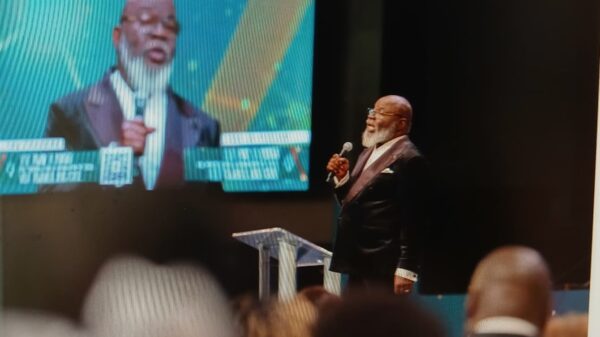By Gromer Jeffers Jr.
https://www.dallasnews.com/

So many Texas voters don’t like participating in primaries.
Only 18% of the nearly 18 million registered voters cast ballots in the March 5 Democratic and Republican primaries. That’s down from 25.3% in 2020, when there were 16.2 million registered Texas voters.
Turnout in the Republican primaries was slightly up, with 12.6% voter turnout, compared with 12.4% in 2020. Democratic primary voting dipped significantly from 2020, when nearly 13% of voters showed up for a competitive race between Joe Biden and Vermont Sen. Bernie Sanders. Democratic turnout two weeks ago was 5.4%.
For this year’s primaries, 82% of registered voters stayed home. That made nonvoters the most influential bloc in the primary process, though not for their own interests.
By not participating in the nominating process, nonvoters empower the more extreme set of voters in both major political parties. Because Texas’ legislative districts were drawn to produce few competitive general election contests, low-turnout primaries allow a fraction of Texas voters to determine who’s elected to office — and the laws and policies that result.
“There’s just a general apathy,” said Joyce LeBombard, president of the League of Women Voters of Texas. “Some people just don’t think their votes matter.”
LeBombard said apathy this year started at the top of the ticket, with polls showing a clear majority of Americans unenthusiastic about a rematch between President Biden and former President Donald Trump, who dominated the primary process long before the race got to Texas.
“Having that apathy at the presidential race level really impacts those down-ballot races,” she said — even though those races have more direct impact on people’s lives.
Other voting advocates agree.
“There’s a lot of disillusionment with both the candidates, particularly the presidential candidates, and also the parties and the process,” said Ramiro Luna, a leader in Somos Tejas, a nonprofit voter advocacy group. “That’s disappointing because the real fight is often in the primaries.”
/cloudfront-us-east-1.images.arcpublishing.com/dmn/E3UISFF445NON7RPVEEY3UIG2M.jpg)
Texas frequently ranks at the bottom in voter turnout, though in the 2020 presidential election 66% of registered voters cast ballots. That was up six percentage points from the 2016 general election.
Registering voters is not the problem. Since March 2020, the number of registered Texas voters rose to 17.9 million, a jump of 1.7 million, according to the Texas secretary of state.
When it comes to primaries, voters are hesitant.
Many primary voters are not hardcore partisans. New or infrequent voters often don’t understand the rules about which primary to participate in or even when and how to vote, advocates say.
Though there are voter education programs, they don’t always reach Texas voters. There’s a lack of information about what’s at stake or what’s on the ballot, voting rights advocates have complained.
“Texas makes it really hard to vote,” said LeBombard, who is originally from Michigan. “A lot of people feel like they don’t know enough about the candidates.”
Elected officials could help in the process, but many are candidates in safe districts and don’t use their resources to drive turnout. Candidates in competitive races use their campaign cash to go after tried and true voters, leaving the new or infrequent voters without a real push to the polls.
In many election cycles, nonvoters are contacted by a group or candidate only through television or digital ads. Even door knocking by candidates or their supporters is typically targeted toward regular voters.
“We have too many safe elections,” said Randall Bryant, chairman of the board of the Dallas Black Chamber of Commerce. “When there are not any competitive races, that impacts turnout.”
Cameron Jerrod Greer, founder of Our Liberation, a voter empowerment group, said politicians share the blame for low voter turnout.
“When you see elected leaders, it’s usually when there’s an election,” Greer said. “They’re at the usual campaign stops like churches, soul food restaurants and barber shops. If you want better turnout, you have to meet the voters where they are, not the usual places.”
“There’s a disconnection between the community and elected officials and candidates who are running,” Greer added. “They need to show people why elections are important, but they also need to shut up and listen to what the people say they need.”
Solutions are tough because nonvoters are not part of the typical political conversation.
LeBombard said she hoped the League of Women Voters would ramp up its focus on voter turnout to better complement its voter education and registration components.
Voter turnout is tough at every level.
Political parties in Texas are not effective in driving turnout because they lack strong infrastructures.
Some local parties have a hard time getting people to serve as precinct chairs. The precinct leaders in place lack the same clout as their counterparts in the Midwest or Northeast, where precinct and block captains are responsible for turning out voters and are able to move through the ranks when they succeed.
If there aren’t political clubs or parties pulling people into the process, Texas voter turnout totals will continue to lag behind most other states in the country.
/cloudfront-us-east-1.images.arcpublishing.com/dmn/6AFL24RRTBGWVBONU6RNVJTGVI.jpg)
Though political parties and primaries are not in the U.S. Constitution, Americans have been conditioned to accept that there can be only two major parties. Primary elections are controlled by political parties, and some centrist voters, including younger Texans who don’t have hardened ideological positions, may object to participating in a partisan process.
At some point Americans will have to consider reforming the primary system to make it more attractive to voters.
Texas cities have nonpartisan elections where everyone is free to run, with the top two vote-getters advancing to a runoff if needed. Municipal elections also feature poor participation, but much of that involves setting those elections for the first Saturday in May, as opposed to the more popular November general election date.
We’re talking about primaries for this column, but voter empowerment is needed across the board.
As for primaries, nonvoters are telling us that something has to change.
This story, originally published in The Dallas Morning News, is reprinted as part of a collaborative partnership between The Dallas Morning News and Texas Metro News. The partnership seeks to boost coverage of Dallas’ communities of color, particularly in southern Dallas.









You must be logged in to post a comment Login